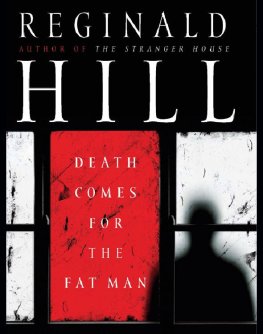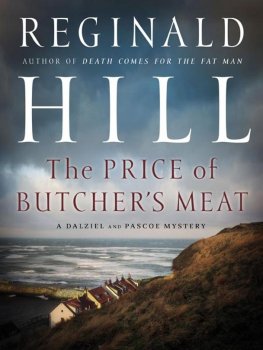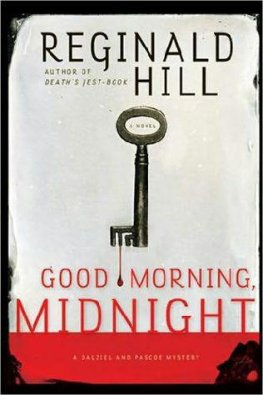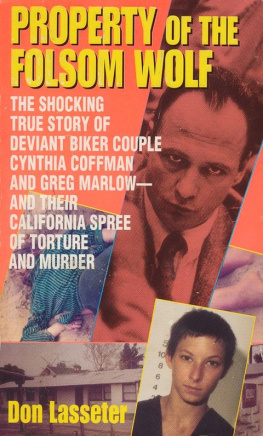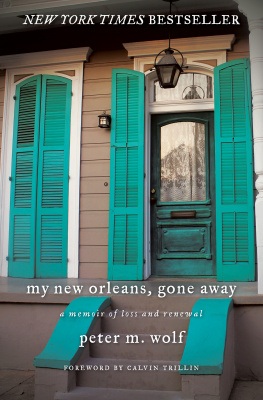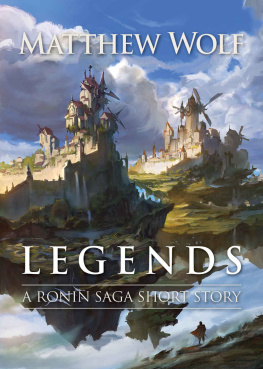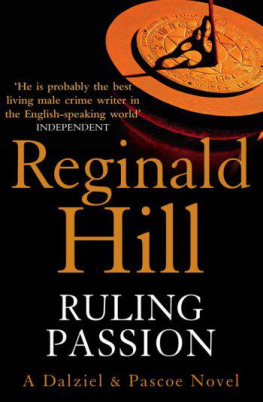THE
WOODCUTTER
A Novel
REGINALD HILL

For John Lennard
a poet among critics
a true friend to writers
and a fountain of knowledge
who by imagining what he knows
helps us to know what we imagine
Insens, dit-il, le jour o javais rsolu de me venger, de ne pas mtre arrach le coeur!
Alexander Dumas: Le Comte de Monte-Cristo
I must have been mad, he said, the day I started planning revenge, not to have ripped my heart out!
Contents
Prologue
Necessity
I am sworn brother, sweet,
To grim Necessity, and he and I
Will keep a league till death.
Shakespeare: Richard II (v.i)
Summer 1963; Profumo disgraced; Ward dead; The Beatles Please please me top album; Luther King having his dream; JFK fast approaching the end of his; the Cold War at its chilliest; the Wind of Change blowing ever more strongly through Colonial Africa, with its rising blasts already being felt across the Gate of Tears in British-controlled Aden.
But the threat of terrorist activity is not yet so great that an eleven-year-old English boy cannot enjoy his summer holiday there before returning to school.
There are restrictions, however. His diplomat father, aware of the growing threat from the National Liberation Front, no longer lets him roam free, but sets strict boundaries and insists he is always accompanied by Ahmed, a young Yemeni gardener cum handyman who has become very attached to the boy.
In Ahmeds company he feels perfectly safe, so when a scarred and dusty Morris Oxford pulls up alongside them with its rear door invitingly open, he feels surprise but no alarm as his friend urges him inside.
There are already two people on the back seat. The boy finds himself crushed not too comfortably between Ahmed and a stout bald man who smells of sweat and cheap tobacco.
The car roars away. Soon they reach one of the boundaries laid down by his father. The boy looks at Ahmed queryingly, but already they are moving into one of the less salubrious areas of the city.
Oddly this isnt his first visit. The previous year, in safer times, having overheard one of the British clerks refer smirkingly to its main thoroughfare as The Street of a Thousand Arseholes, he had persuaded Ahmed to bring him here. The street in question had been something of a disappointment, offering the boy little clue as to the origin of its entertaining name. Ahmed had responded to his questioning by saying with a grin, Too young. Later maybe, when you are older!
Now the Morris turns into this very street, slows down, and almost before it has come to a halt the boy finds himself bundled out by the bald man and pushed through a doorway.
But he is not yet so frightened that he does not observe the number 19 painted on the wall beside the door.
He is almost carried up some stairs and taken into a room empty of furniture but full of men. Here he is dumped on the floor in a corner. He tries to speak to Ahmed. The young man shakes his head impatiently, and after that will not meet his gaze.
After ten minutes or so a new man arrives, this one wearing a European suit and exuding authority. The others fall silent.
The newcomer stands over the boy and stoops to peer into his face.
So, boy, he says. You are the son of the British spymaster.
No, sir, he replies. My father is the British commercial attach.
The man laughs.
When I was your age, I knew what my father was, he says. Come, let us speak to him and see how much he values you.
He is dragged to his feet by the bald man and marched into another room where there is a telephone.
The man in the suit dials a number, the boy hears him speak his fathers name, there is a pause, then the man says, Say nothing. I speak for the Front for the Liberation of South Yemen. We have your son. He will speak to you so that you know I do not lie.
He makes a gesture and the boy is forced forward.
The man says, Speak to your father so he may know it is you, and puts the phone to the boys mouth.
The boy chants, Mille ani undeviginti.
The man snatches the phone away and grabs the boy by the throat.
What did you say? he screams.
You said he had to know it was me, gabbles the boy. Its a song we sing together about Paddy McGintys Goat. Ask him, hell tell you.
The man speaks into the phone: What is this Ginty goat?
Whatever is said to him seems to satisfy him and, at a nod from the man, the boy is dragged back to the first room.
Here he lies in the corner, ignored. Men come and go. There is an atmosphere of excitement as though everything is going well. Ahmed, who receives many congratulatory slaps and embraces, still refuses to look at him. He grows increasingly fearful and sinks towards despair.
Then from below comes a sudden outburst of noise.
First the splintering of wood as though a locked door is being broken down, then a tumult of upraised voices followed almost instantly by the rattle of small-arms fire.
All the men rush out. Left alone, the boy looks for a place to hide but there is nowhere. The rooms one window is too small for even a small eleven-year-old to wriggle through.
The din is getting louder, nearer. The door bursts open. The bald man rushes in with a pistol in his hand. The boy falls to the floor. The man screams something unintelligible and aims the weapon. Before he can fire, Ahmed comes in behind and jumps on his back. The gun goes off. The bullet hits the floor between the boys splayed legs.
The two men wrestle briefly. The gun explodes again.
And the bald man slumps against the wall, his hands holding his stomach. Blood seeps through his fingers.
Ahmed stands over him, clutching the pistol. Now at last his eyes meet the boys and he tries to smile, but it doesnt quite work. Then he turns to the door that has been slammed shut in the struggle.
The boy cries, Ahmed, wait!
But the young Yemeni is already opening the door.
He hardly takes one pace over the threshold before he is driven back into the room by a hail of bullets that shatter his chest.
Their eyes meet once more as he lies on the floor. This time the smile makes it to his lips. Then he dies.
Folded in his fathers arms, the boy finally lets himself cry.
His father says, You did well, you kept your head; the apple doesnt fall far from the tree, eh? And didnt I tell you that doing your Latin homework would come in useful some day!
Two years later his father will be killed when his car is blown up by a FLOSY bomb, so the boy never has the chance to sit down with him as an adult and ask what the subversives wanted him to do as the price of his sons safety.
Nor what his answer would have been if his own young wits had not been quick enough to reveal the street and the building number where he was being held.
But before he went back to school he did ask how it was that his friend Ahmed, who had loved him enough to save his life and give up his own in the process, could have put him in that perilous position in the first place.
And his father had answered, When love is in opposition to grim necessity, there is usually only one winner.
He had not understood then what he meant. But he was to understand later.
Autumn 1989; the world in turmoil; the Berlin Wall crumbling; Chris Reas The Road to Hell top album; Western civilization watching with bated breath the chain of events that will lead to the freeing of Eastern Europe and the end of the Cold War.
In a Cumbrian forest in a glade dappled by the midday sun, a man sits slumped against a twisted rowan, his weathered face more deeply scored by the thoughts grinding through his bowed head, his eyes fixed upon but not seeing the unopened flask and sandwich box between his feet. A little way apart, a second man stands and watches, his long brown hair edged wolf-grey, his troubled face full of a compassion he knows it is vain to express, while at his back a young girl too regards the sitting man with unblinking gaze, though her expression is much harder to read. And over the wide woodland tract, so rarely free of the winds soughing music above, and the pizzicato of cracking twigs below, a silence falls as if trees and sky and surrounding mountains too were bating their breath for fear of intruding on grief.
Next page


